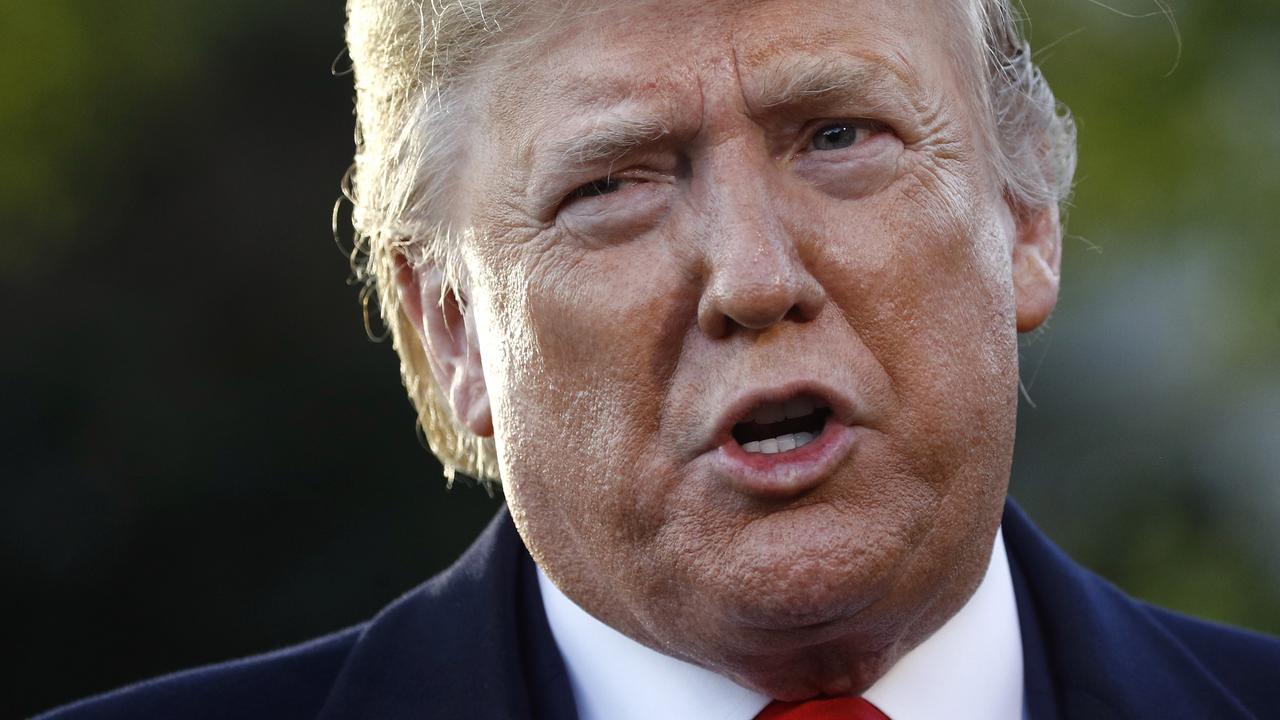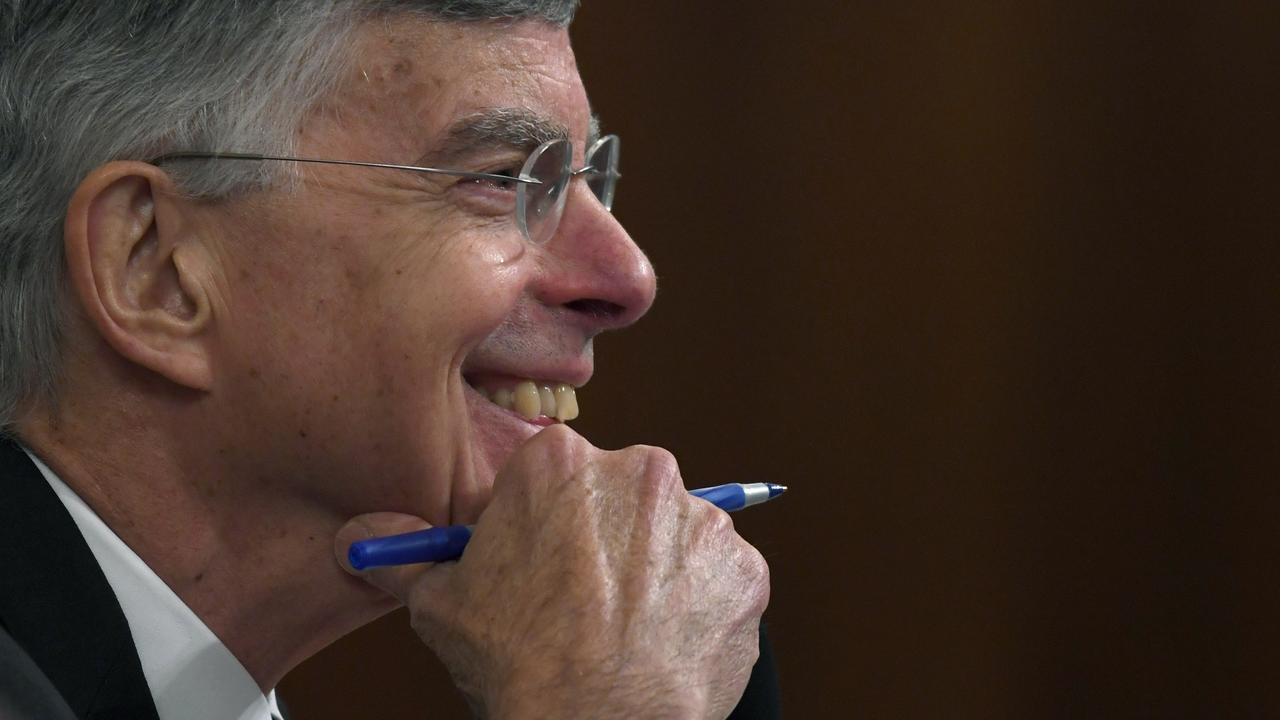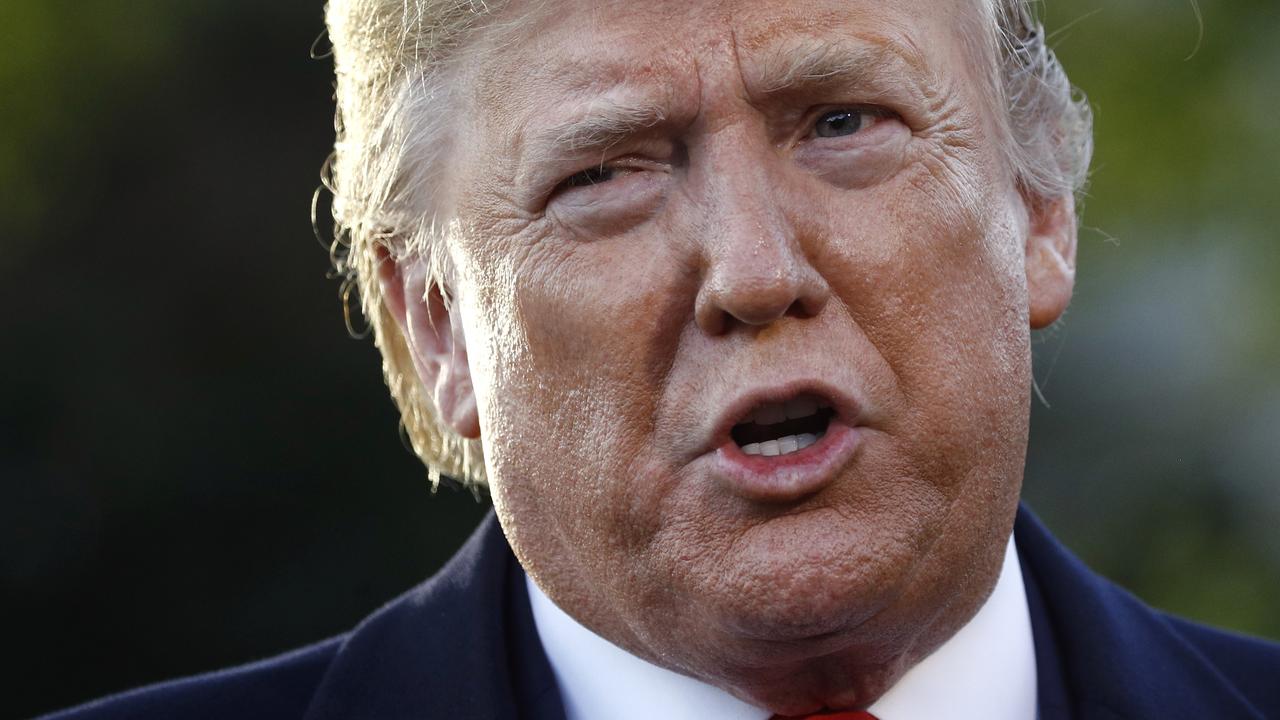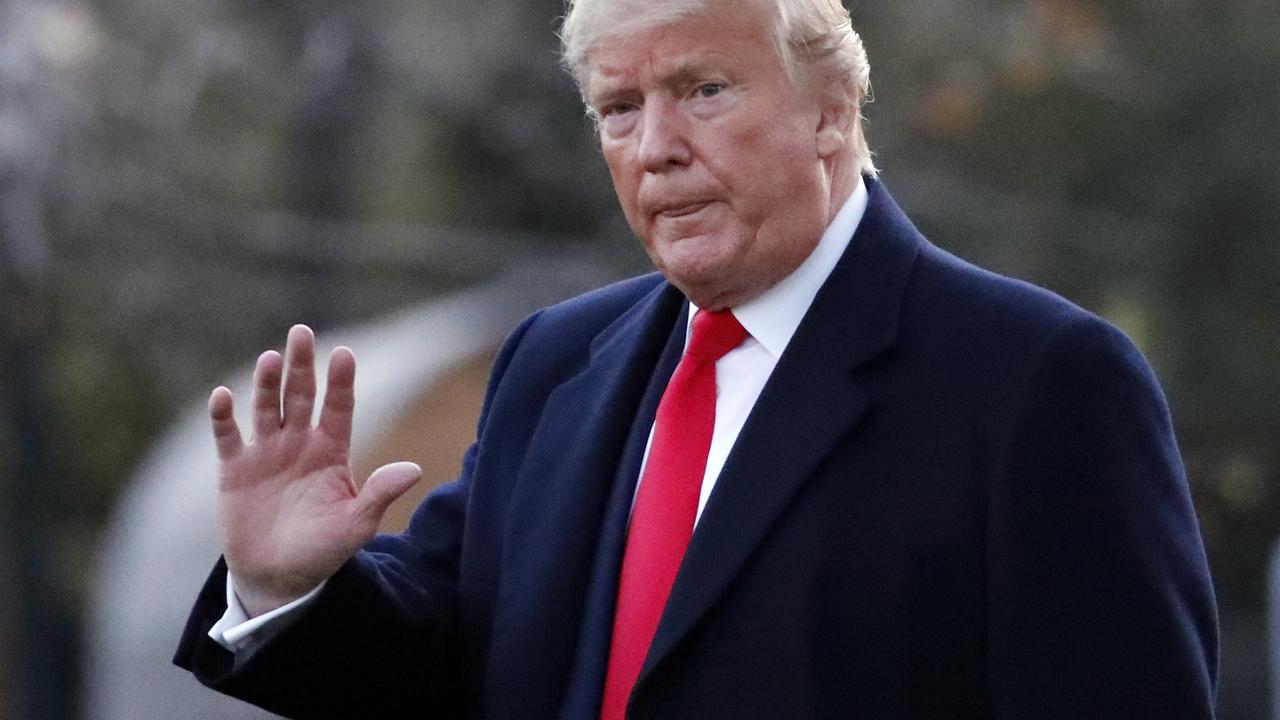Mysterious 72-hour period at the heart of the Trump impeachment inquiry
For months, Donald Trump stubbornly refused to change his mind. Then, all of a sudden, he reversed course. The obvious question is, why?

COMMENT
This week the Trump impeachment inquiry shifted into its second phase.
Millions of Americans watched as witnesses who had previously been interviewed behind closed doors repeated all their testimony – and faced a grilling from politicians – in front of the cameras.
In truth, there was not much new information. We already knew what these witnesses had said in their private interviews, because transcripts were released.
The public hearings were instead dominated by the sort of maddeningly pointless grandstanding politicians love so much. Both sides were guilty of it.
There was, however, one important new revelation. It came from America’s Ambassador to Ukraine, Bill Taylor.
Mr Taylor added a fresh detail to his previous testimony – an account of a phone call on July 26, witnessed by a member of his staff, which involved Donald Trump himself.
RELATED: Donald Trump’s impeachment defence suffers terrible blow

That staff member accompanied America’s Ambassador to the European Union, Gordon Sondland, as he met with Andriy Yermack, a top adviser to Ukrainian President Volodymyr Zelensky.
“Following that meeting, in the presence of my staff at a restaurant, Ambassador Sondland called President Trump and told him of his meetings in Kiev. The member of my staff could hear President Trump on the phone asking Ambassador Sondland about the investigations,” Mr Taylor testified.
“Ambassador Sondland told President Trump the Ukrainians were ready to move forward.”
Mr Trump wanted Ukraine to start two investigations – one into the conspiracy theory that Ukraine, not Russia, interfered in the 2016 US election, and another into the conduct of Joe Biden and his son Hunter, who controversially scored a lucrative job on the board of a Ukrainian company called Burisma.
RELATED: Trump spreads another bizarre conspiracy theory
RELATED: Joe Biden’s son makes awkward admission
“Following the call with President Trump, the member of my staff asked Ambassador Sondland what President Trump thought about Ukraine,” Mr Taylor said.
“Ambassador Sondland responded that President Trump cares more about the investigations of Biden, which Giuliani was pressing for.”
Former New York mayor Rudy Giuliani is now Mr Trump’s personal lawyer. He has been accused of running a “shadow foreign policy” separate from the usual diplomatic channels in an attempt to pressure Ukraine into starting those investigations.
One of the biggest questions in the impeachment inquiry is the extent to which Mr Trump was personally involved in that campaign.
This fresh piece of evidence makes it even harder to argue he was ignorant.

Mr Trump’s allies in the Republican Party still have a few defences to fall back on. They will be tested as we move into a second week of public hearings in the coming days.
The first line of defence is that the witnesses the Democrats have brought before Congress so far, such as Mr Taylor, had no direct interactions with the President, and therefore cannot provide conclusive evidence about his actions.
It’s a fair point, but is unlikely to last. Mr Sondland, who most certainly did deal with Mr Trump directly, is scheduled to testify on Wednesday.
No one can credibly call him a political enemy of the President, or a “Never Trumper”, as some other witnesses have already been labelled. He donated heavily to Mr Trump’s campaign and inauguration, and was subsequently hand-picked to be EU Ambassador.
The President has previously described him as “highly respected” and “a really good man and a great American”.
Mr Sondland tried to defend Mr Trump in his private testimony to Congress, denying the President’s push for an investigation of the Bidens had been linked to $391 million in delayed military aid for Ukraine.
He later revised that testimony, admitting the two things were connected, after being contradicted by other witnesses.
On Wednesday, the Democrats will get to ask Mr Sondland about that backflip, and about the phone call Mr Taylor mentioned. He will be under oath, and on live TV. Whatever the truth is, he will have no choice but to reveal it.
The Republicans’ second defence is that Ukraine itself has denied the military aid was connected to the Biden investigation. That is true.
“Ambassador Sondland did not tell us, and certainly did not tell me, about a connection between the assistance and the investigations. You should ask him,” Ukrainian Foreign Minister Vadym Prystaiko said this week.
“I have never seen a direct relationship between investigations and security assistance. Yes the investigations were mentioned, you know, in conversations of the presidents. But there was no clear connection between these events.”
The obvious wrinkle with this argument is that Ukraine cannot afford to publicly contradict Mr Trump. It desperately needs to stay on his good side, because it still requires American aid in its fight against Russian-backed militants.
Mr Trump could conceivably be President for another five years. Annoying him would be a disastrous diplomatic misstep. So Ukraine has every incentive to back up his denials.

The third defence, and the one whose collapse would hurt Mr Trump the most, is Republicans’ argument that the military aid was eventually released without the two investigations starting, and that therefore they could not have been connected.
This appears to be extremely dangerous ground for the President.
The aid, which was approved by Congress months ago, was released on September 11 after being delayed by the White House for almost 60 days. We have yet to hear a plausible reason for that delay.
Let’s delve into the timeline – specifically, the 72 hours before the aid was released.
The initial whistleblower complaint, which kicked off this entire circus and largely focused on Mr Trump’s phone call with Mr Zelensky, was filed on August 12.
RELATED: Killer moment in Trump’s phone call
On September 9, almost an entire month later, Congress was informed of the complaint’s existence, and announced an investigation into Mr Giuliani’s actions in Ukraine.
The next day, on September 10, Democrats asked the Director of National Intelligence, who reports to the President, for more information about the complaint.
And one day after that, Mr Trump suddenly decided to release the aid.
The key question we do not have any answer to is why the President made that decision. Why, after holding up the aid for months and stubbornly resisting the advice of his own aides, did he suddenly reverse course and release it? Who convinced him to make that decision, and how did they persuade him?
Is it merely a staggering coincidence that Mr Trump released the aid so abruptly as soon as it became clear the Democrats were sniffing around? Or did he make that choice in an attempt to avoid being caught?
And why did the pressure on Ukraine to investigate the Bidens suddenly stop at the same time, if the aid was never linked to it anyway?
Those questions, and that mysterious three-day period, will be a crucial element of the impeachment inquiry going forward.
The Democrats’ biggest challenge is to find the witnesses who can provide definitive answers.
There’s a reason so few people with direct knowledge of Mr Trump’s actions have testified – the White House is blocking them from doing so.
Chief of Staff Mick Mulvaney, Secretary of State Mike Pompeo and former national security adviser John Bolton are just a few examples of officials who have refused to appear.
If nothing untoward happened, why don’t they want to speak?




